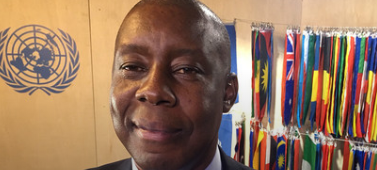Theko Tlebere
Lesotho’s political landscape has once again drawn national and regional attention following the dismissal of Professor Nqosa Mahao from his position as Minister of Energy. This decision has ignited public debate regarding the direction of Prime Minister Sam Matekane’s administration and whether it signifies the need for a broader cabinet reshuffle or merely a replacement to fill the vacancy. As we begin the year’s long series of writings, my article for today examines the importance of a strategic cabinet reshuffle, particularly in the context of Lesotho’s political dynamics, governance imperatives, and the potential benefits of effective policy implementation.
Professor Mahao’s dismissal is more than just a routine personnel change. As a prominent academic and political figure known for his advocacy of governance reforms and transparency, his exit from the Ministry of Energy raises concerns about the internal cohesion within the coalition government. It also prompts questions regarding the performance expectations for cabinet members and whether his dismissal stemmed from policy disagreements, underperformance, or political maneuvering.
A vacant ministerial position, especially one as vital as energy, presents a crucial opportunity for the Prime Minister to reassess the composition of his executive team. This moment should not be viewed merely as an administrative formality to fill a vacancy; instead, it should encourage the Prime Minister to reflect on the efficacy, balance, and vision of his entire cabinet.
When conducted strategically, a cabinet reshuffle serves several important purposes. It is not simply a tool for rewarding or punishing politicians but a mechanism for enhancing governance and policy effectiveness.
Key purposes of a reshuffle include:
- Policy Alignment and Efficiency: As governmental priorities evolve, a reshuffle allows the Prime Minister to ensure that cabinet members possess the skills and commitment necessary to effectively implement the government’s agenda.
- Enhancing Accountability: A reshuffle can send a clear message that poor performance or non-compliance with governmental directives will not be tolerated.
- Reinvigorating the Administration: A reshuffle can bring renewed energy to the government’s leadership by introducing new talent and redistributing responsibilities.
- Political Stability and Representation: In coalition governments like Lesotho’s, reshuffles can help maintain harmony, ensure fair representation of various factions, and address grievances within the coalition.
Lesotho’s political history features numerous examples of both successful and problematic cabinet reshuffles. Previous administrations have frequently employed reshuffles as reactive measures to political infighting rather than as strategic initiatives aimed at enhancing governance. Such reactive approaches have, in some instances, intensified instability and diminished public trust.
In contrast, well-executed reshuffles in other countries have strengthened their administrations. For instance, during South Africa’s post-apartheid era, periodic reshuffles were implemented to align ministries with developmental priorities. Although occasionally controversial, these reshuffles underscored the importance of placing competent, reform-minded leaders in crucial positions.
If Prime Minister Matekane decides on a comprehensive reshuffle rather than merely replacing the Minister of Energy, several factors should guide his decision-making process:
- Performance-Based Assessment: Each cabinet member should be evaluated against specific targets and outcomes to ensure that reshuffles are based on merit rather than political expediency.
- Sectoral Prioritisation: In light of Lesotho’s socio-economic challenges, critical sectors such as health, education, and energy must be led by individuals with technical expertise and proven leadership skills.
- Maintaining Stability: Given the fragile political climate, reshuffles should be managed cautiously to avoid destabilising the coalition and triggering factional disputes.
- Public Perception and Communication: Transparency throughout the reshuffling process is crucial for preserving public trust. Clear communication about the reasons behind changes can help alleviate speculation and reinforce the government’s commitment to good governance.
A reshuffle presents Prime Minister Matekane with an opportunity to tackle some of Lesotho’s key governance challenges. The energy sector, for example, is vital for economic development, job creation, and service delivery. Appointing an experienced and forward-thinking leader to fill this vacancy could enhance the country’s energy policy and attract necessary investments.
However, focusing solely on replacing the Minister of Energy without addressing broader governance issues may limit the change’s impact. A strategic reshuffle could also rectify underperformance in other ministries, improve policy coherence, and signal a strong commitment to achieving tangible outcomes. Furthermore, introducing new faces can bring innovative ideas and fresh perspectives essential for overcoming entrenched challenges.
While a cabinet reshuffle can offer several potential benefits, it also carries risks. Frequent changes in leadership may disrupt policy continuity and create uncertainty among civil servants and stakeholders. Furthermore, reshuffles that appear politically motivated can foster public cynicism and erode trust in the government’s intentions. To mitigate these risks, the reshuffling process should be guided by clear objectives and transparent criteria. The Prime Minister should refrain from reshuffling merely to appease political allies or silence critics. Instead, the emphasis should be on assembling a capable and cohesive team united by a shared vision for national development.
The dismissal of Professor Nqosa Mahao presents Prime Minister Sam Matekane with a pivotal moment in his administration. Whether he chooses a targeted replacement or a broader reshuffle, his decision must adhere to the principles of meritocracy, accountability, and national interest. By conducting a strategic reshuffle, the Prime Minister can enhance his government’s ability to fulfill its promises and address the urgent needs of Basotho citizens.
A well-planned reshuffle has the potential to reinvigorate the administration, restore public confidence, and establish a foundation for sustainable development. However, such an initiative demands careful consideration, transparent communication, and a firm commitment to good governance.
At this critical juncture, Prime Minister Matekane has the opportunity to demonstrate that his government prioritises effective leadership over political expediency and is genuinely dedicated to building a prosperous future for Lesotho. The future is NOW!
Summary
- This decision has ignited public debate regarding the direction of Prime Minister Sam Matekane’s administration and whether it signifies the need for a broader cabinet reshuffle or merely a replacement to fill the vacancy.
- As we begin the year’s long series of writings, my article for today examines the importance of a strategic cabinet reshuffle, particularly in the context of Lesotho’s political dynamics, governance imperatives, and the potential benefits of effective policy implementation.
- As a prominent academic and political figure known for his advocacy of governance reforms and transparency, his exit from the Ministry of Energy raises concerns about the internal cohesion within the coalition government.

Your Trusted Source for News and Insights in Lesotho!
At Newsday Media, we are passionate about delivering accurate, timely, and engaging news and multimedia content to our diverse audience. Founded with the vision of revolutionizing the media landscape in Lesotho, we have grown into a leading hybrid media company that blends traditional journalism with innovative digital platforms.








